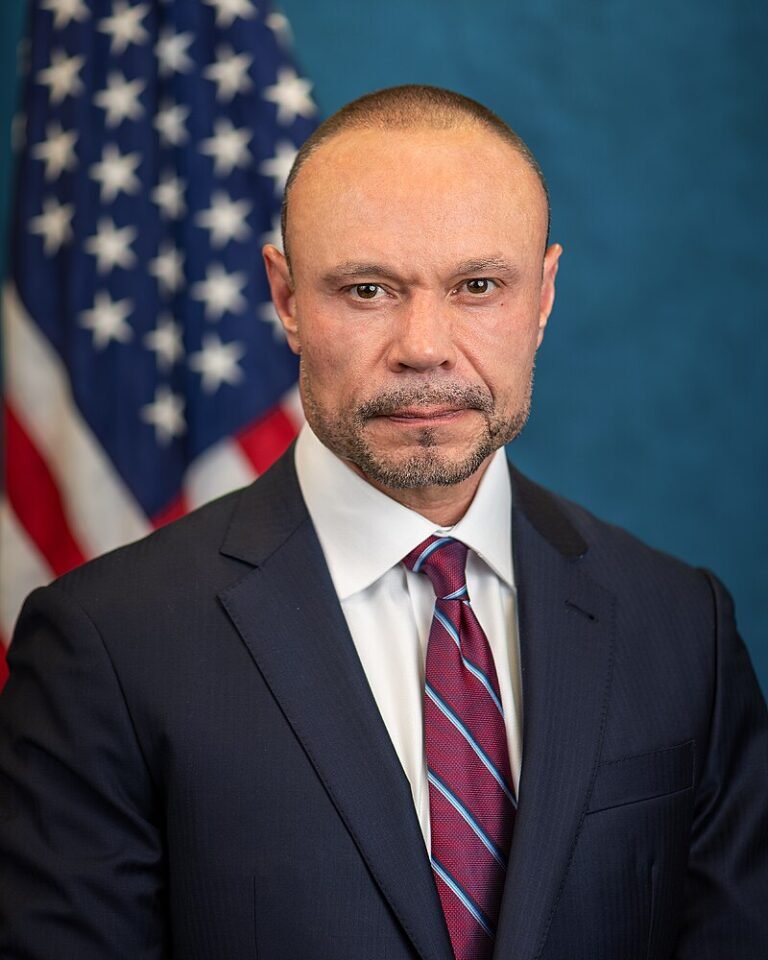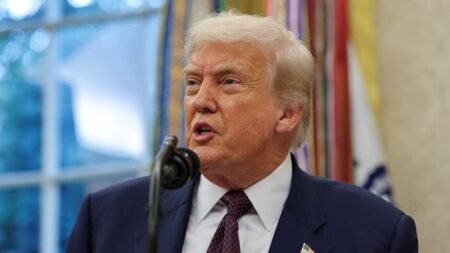FBI Deputy Director Dan Bongino has recently come into the spotlight amid growing tensions within the Justice Department. Known for his prior career as a Secret Service agent and his role as a conservative political commentator, Bongino’s current position at the FBI places him at the center of significant legal and political controversies. Recent reports indicate that Bongino is considering stepping down following a disagreement with Attorney General Pam Bondi over a review of the Jeffrey Epstein case.
The Jeffrey Epstein case has been under intense scrutiny for several years, involving questions about the handling of investigations and the extent of legal accountability. Bongino’s involvement in the review process reportedly sparked conflict with Bondi, leading to unrest inside the Justice Department. This disagreement appears to have contributed to Bongino’s absence from work on a recent Friday, raising speculation about his future with the agency.
Dan Bongino’s career is marked by his transition from federal law enforcement to media and political commentary, and now back into a high-ranking federal role. Before joining the FBI leadership, Bongino built a public profile as a conservative commentator known for his outspoken views on law enforcement, politics, and national security. His move into the FBI deputy director position reflects a blending of his law enforcement experience and political visibility.
The tension within the Justice Department, particularly between Bongino and Bondi, reflects broader challenges facing the agency amid politically charged investigations. Attorney General Pam Bondi, who recently dismissed charges against Utah plastic surgeon Dr. Michael Kirk Moore, has been active in cases drawing public attention and political debate. Bondi’s public defense of Moore, including praise on social media and thanks to Congresswoman Marjorie Taylor Greene, illustrates the polarized environment in which Bongino operates.
The situation involving Bongino highlights the complexities federal agencies face when internal disagreements intersect with high-profile legal cases. Bongino’s reported consideration to step down comes at a time when the Justice Department is navigating difficult investigations and heightened political scrutiny. His absence and potential departure may impact ongoing efforts within the FBI and the department at large.
As FBI Deputy Director, Bongino holds significant responsibility in overseeing federal law enforcement operations and ensuring the agency’s mission is fulfilled. His leadership role places him in a position to influence policies and actions related to national security, criminal investigations, and agency management. The reported discord with Bondi underscores the challenges inherent in balancing law enforcement duties with political and administrative pressures.
Dan Bongino’s background as a former Secret Service agent brings valuable experience to his FBI role, particularly in matters of protective security and investigation. His public persona as a conservative commentator also adds a unique dimension to his federal position, as it shapes perceptions of his approach to law enforcement and policy issues. The ongoing situation within the Justice Department may further define Bongino’s legacy and influence in federal law enforcement.
The future of Bongino’s career in the FBI remains uncertain as reports circulate about his possible resignation. The Justice Department’s ability to manage internal disagreements while addressing critical cases like the Epstein review will be closely watched. Bongino’s role in these dynamics reflects broader tensions at the intersection of law enforcement, politics, and public accountability.
While Bongino’s dispute with Bondi centers on a specific review, it also signals wider challenges in maintaining cohesion within the Justice Department. Leadership conflicts can affect morale, operational effectiveness, and public trust in federal institutions. How these issues are resolved may have lasting implications for the FBI and its relationship with political leadership.
Dan Bongino’s story illustrates the complexities faced by federal officials who navigate law enforcement responsibilities alongside political realities. His experience, public profile, and current challenges exemplify the pressures confronting high-ranking officials in today’s politically charged environment. Observers will continue to watch developments involving Bongino and the Justice Department as they unfold.







